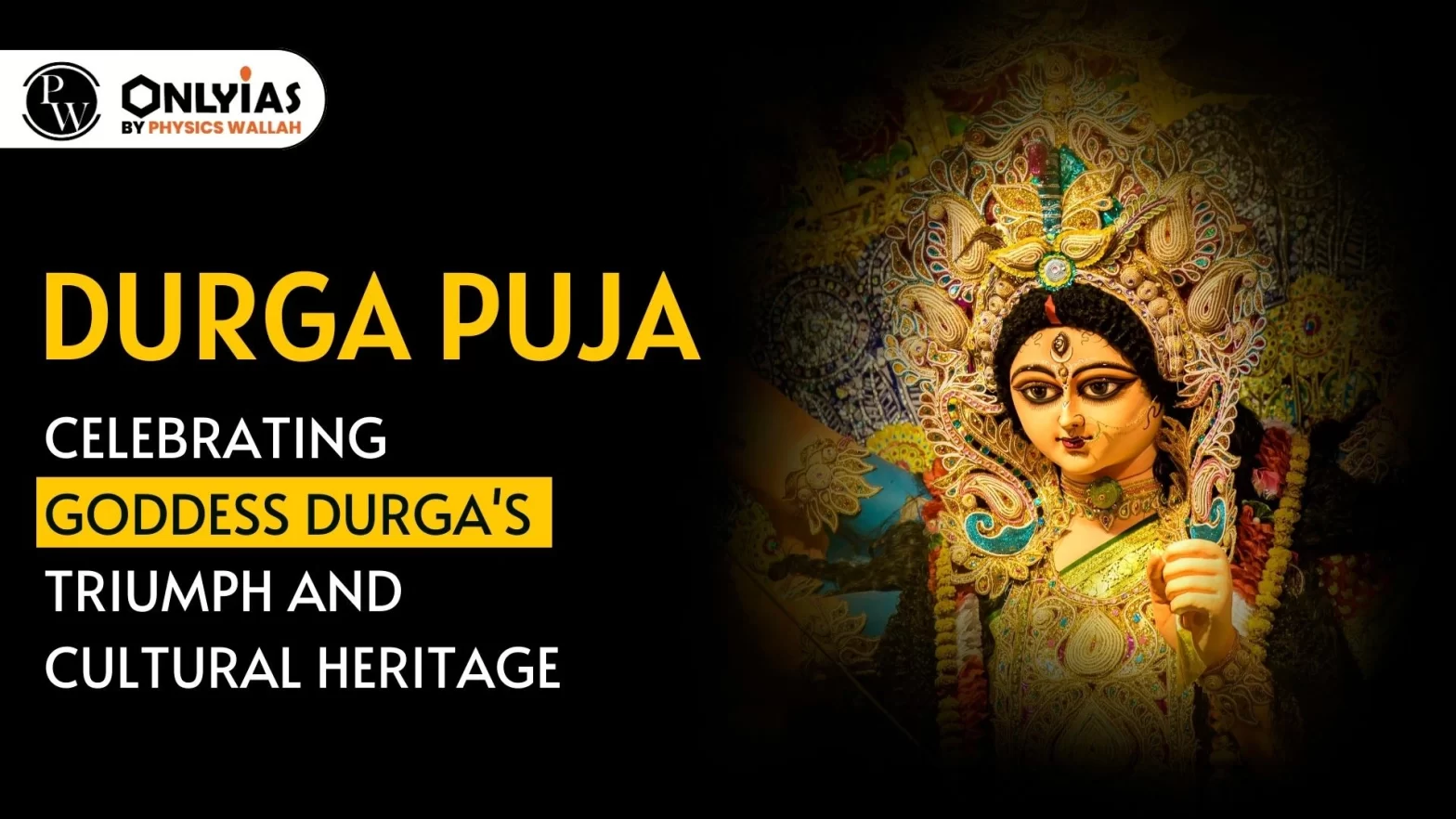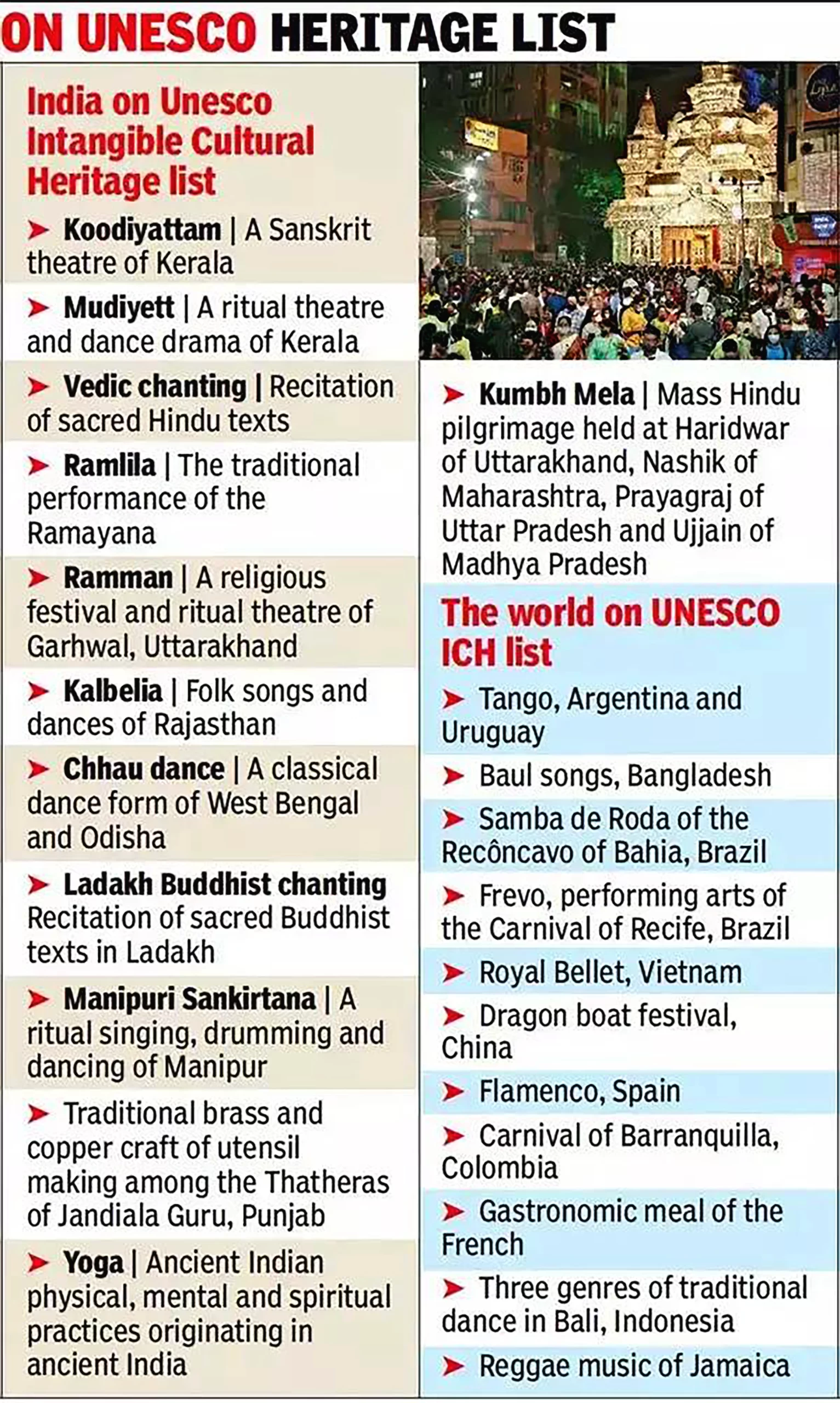Context: Durga Puja, one of the most important festivals of eastern India, will be celebrated from October 20 to October 24.


The Durga Puja festival is an important cultural event for people of India, especially in the eastern part of the country. It is not just its religious significance of Durga Puja that matters but also the cultural influence it exerts on the people of the region.
| Must Read | |
| NCERT Notes For UPSC | UPSC Daily Current Affairs |
| UPSC Blogs | UPSC Daily Editorials |
| Daily Current Affairs Quiz | Daily Main Answer Writing |
| UPSC Mains Previous Year Papers | UPSC Test Series 2024 |
Durga Puja, also known as Durgotsava or Sharodotsav, is an annual Hindu festival that reveres and pays homage to the Hindu goddess Durga.
The festival of Durga Puja will be celebrated from October 20 to October 24.
The main story associated with Durga Puja is the battle that took place between goddess Durga and the demon Mahishasura.
Durga Puja festival is celebrated with scripture recitations, performance arts, revelry, gift-giving, family visits, feasting, and public processions, fairs.
Intangible cultural heritage represents the practices, expressions, knowledge and skills that communities, groups and people recognize as part of their cultural heritage.
<div class="new-fform">
</div>